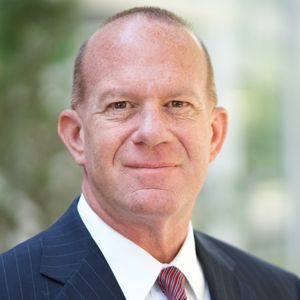
When was the last time you had a difficult conversation that went well?
It’s rare, but important. Learning how to have productive, difficult conversations is critical in developing authentic, healthy relationships – with co-workers, business associates, family and friends.
The most common approach is to avoid them. That’s understandable. But like most things, the easiest path isn’t always the best. Sweeping difficult subjects under the rug can lead to tension, mistrust and animosity. That’s hardly the stuff of healthy relationships.
And there’s always the risk that a difficult conversation will go badly; that feelings will be hurt, or words will be fumbled or regretted. It’s not ideal, but it’s better than avoidance. At least the issue is on the table, and there’s no rule against do-overs and follow-ups.
Clearly the ideal scenario is to have the conversation and for it to go well. This is not about “winning.” It’s not even about two sides agreeing. Instead, it’s about views being presented with clarity, respect and open-mindedness. It takes courage and discipline. It takes practice. And it’s the best way to close a rift between parties – including large segments of society.
That’s the premise behind Advancing Oklahoma, a program billed as “a statewide conversation on race.”
For many Americans, last summer was a wake-up call. The murder of George Floyd and the civil unrest that followed underscored that our country must work on improving race relations. Including here in Oklahoma.
Starting next month, five statewide nonprofits – all well-respected organizations with diverse populations – will bring its collective memberships together to hear speakers and experts, and discuss race relations in our state. The organizations are Leadership Oklahoma, The Oklahoma Academy, Oklahoma Center for Community and Justice, Oklahoma Center for Nonprofits, and Oklahoma Hall of Fame. Their goal is to lead courageous, respected conversations that will ripple into all corners of the state.
Our firm is fortunate to work on this project alongside these groups. We don’t claim to have all the answers. Nor can we promise to “fix” everything. But it’s time to do something. It’s time to reckon with our past. It’s also time to reckon with our present. The policies we enact in our schools are a reflection of our worldview. And when conversations about race among school-age children are discouraged, tensions and mistrust surely will rise. Instead of teaching our kids to have constructive conversations, we’re avoiding it for fear of making someone uncomfortable.
Advancing Oklahoma is built with the idea that we owe it to ourselves and our fellow humans to better understand one another. We owe it to our children and our communities. We must model the behavior that we wish to see in others. Even if it’s awkward.
As one Advancing Oklahoma committee member said, “We’re not here to make anyone feel guilty. But we’re also not here to make you feel comfortable.”
“Nothing worth having is easy,” Theodore Roosevelt said. Better race relations are worth having.
Here’s to good conversations that advance Oklahoma.
Russ Florence is a partner at the consulting firm of Schnake Turnbo Frank.
From The Journal Record
